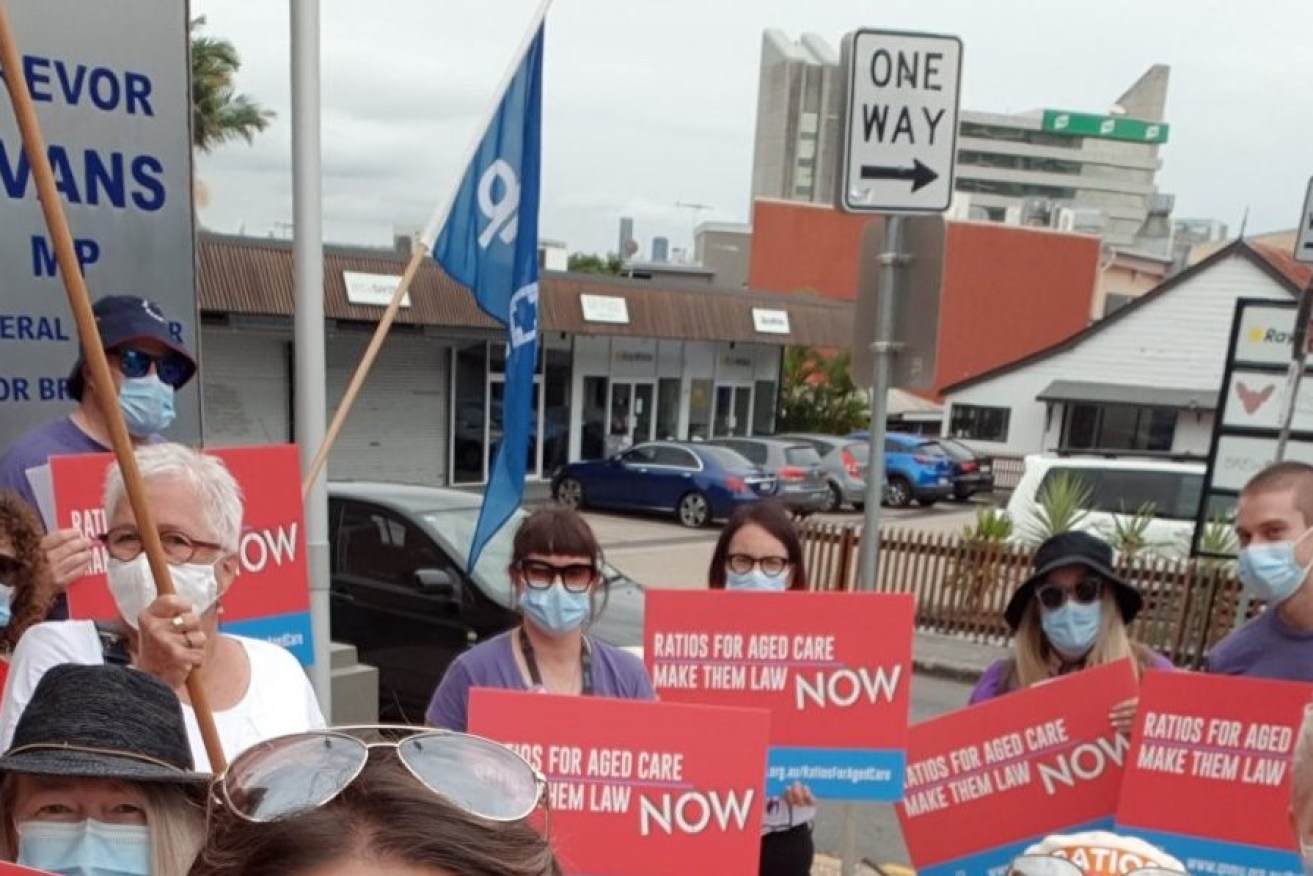Nurses worried about jobs and health force government to act
The Queensland Nurses and Midwives’ Union has forced the Palaszczuk Government to double check the equipment meant to keep frontline workers safe.

The Queensland Nurses and Midwives' Union won concessions from the state government on new services and roles.. (Source: ANMU)
The QNMU took the government to the Queensland Industrial Relations Commission on Wednesday and secured a commitment that Personal Protective Equipment (PPE) procedures will be audited.
As a priority, fit-testing audits will be taken at Hospital Health Services in Metro North, Metro South, Sunshine Coast, Gold Coast, Torres and Cape York and Cairns by April 19. All other HHS areas will be audited by April 22, and the results relayed to the AIRC by April 27.
Premier Annastacia Palaszczuk today said the government would comply with the order and conduct the audits.
“Our nurses’ safety is paramount,” Palaszczuk said.
After two recent outbreaks involving three nurses and the Princess Alexandra Hospital, where a doctor had previously also been infected, QNMU secretary Beth Mohle said the potential ramifications of ill-fitting and inadequate PPE were significant.
“This is a health and safety issue for everyone in the community,” Mohle said.
“Health and safety cannot be assured unless we have confidence in the proper fit-testing of PPE for nurses and other health workers.”
In a statement, Queensland Health said it continually reviewed and revised its PPE guidance, and updated its practices in national guidelines.
The audits will coincide with Queensland Health bringing all HHS data into a central database to ensure there are no gaps, in masks or the system.
“Throughout this pandemic we have prioritised processes and procedures that place their wellbeing front and centre of our public health response,” Queensland Health said.
“Everyone deserves to come to work feeling safe and protected.”
The dispute comes as nursing unions use a Senate inquiry into job security to fight back against changes they argue have put careers and even lives at risks.
In a recently-tabled submission, the QNMU said the casualisation of the workforce came with a requirement that aged care workers not do shifts at multiple sites due to the potential infection risk.
“Nurses and midwives have experienced significant job loss during the pandemic, particularly, in the private sector with the cessation of elective surgeries, closure of health services, as well as in the aged care sector,” the QNMU wrote in its submission.
“Some aged care facilities attempted to make staffing cuts and redundancies under the guise of low occupancy rates, whilst others opted to significantly reduce staffing hours – all during a time when aged care was most vulnerable.”
The Australian Nursing and Midwifery Federation told the committee that some Commonwealth agencies had spoken early in the pandemic of the need for a “surge workforce” to respond to COVID-19.
“Despite this recognition of the importance of the nursing and midwifery workforce, many nurses and midwives employed by private hospitals and other private providers were stood down in the early days of the pandemic,” the ANMW wrote in its submission.
According to the Australian Bureau of Statistics, there are almost 60,000 nurses, midwives and carers, and 88,000 aged and disabled carers, employed as casuals.
Not only do casual roles come with less job security, the Federal Government last year arranged for additional aged care staff to be employed through labour hire firms and also promoted the use of agency arrangements in health and aged care.
“The ANMF is also concerned that the Commonwealth Government has moved to promote this form of insecure work as an alternative to providers engaging ongoing workers directly,” the ANMF wrote.
“These would be workers who are familiar with the needs of residents, especially when there have been periods of limited access to nursing homes by families and friends. They are essential to providing quality and safe care.”
The QNMU warned any further cuts to permanent staffing would impact on quality and hollow-out the nursing workforce, particularly casuals “who through experience have been the most vulnerable to the impacts of a fragile workforce”.












